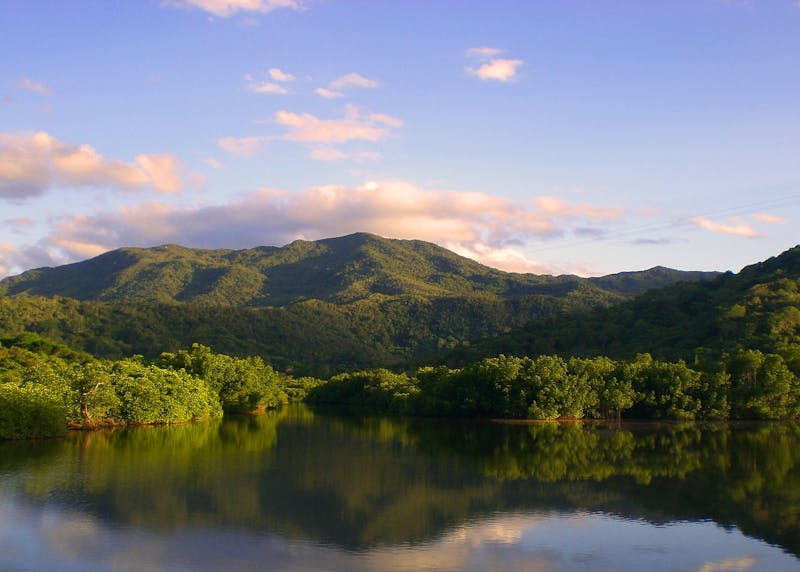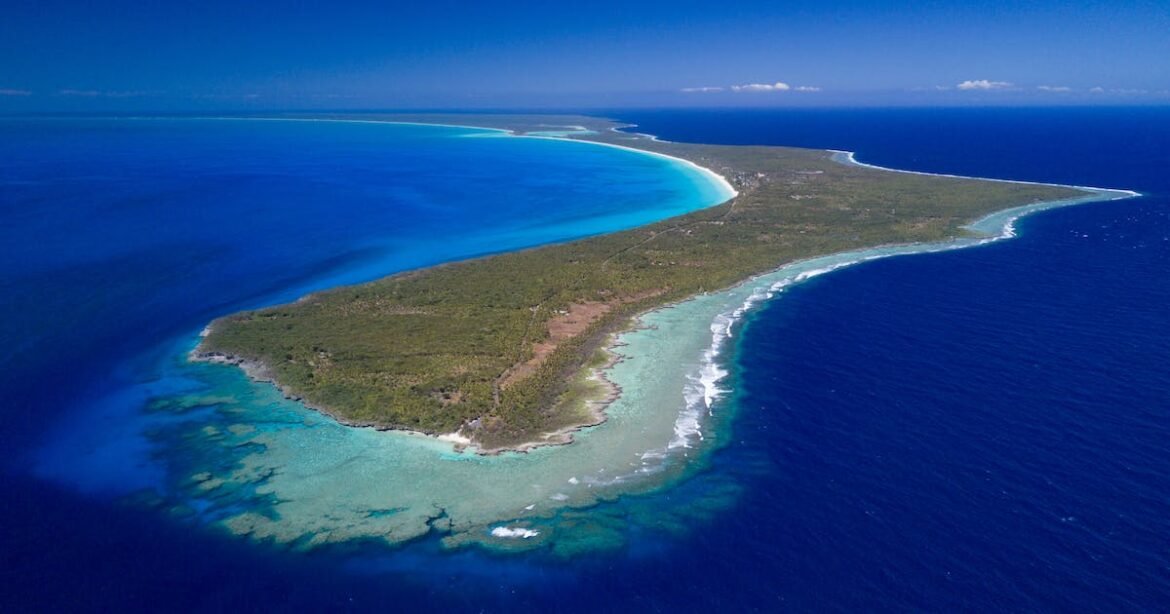New Caledonia recently took a big step for ocean conservation by banning all industrial activities — such as fishing, mining and oil drilling — in 10 percent of its waters. The strong new protections will safeguard the habitats of whales,
sharks and seabirds, as well as some of the healthiest coral reefs on Earth.
“This is the result of years of hard work and collaboration across communities and industries,” said Thomas Auger, a Conservation International marine expert based in New Caledonia. “It’s a new day for ocean conservation in New Caledonia.”
A decade ago, New Caledonia, a French territory in the South Pacific, created the Natural Park of the Coral Sea — a 1.3 million square kilometer (502,000 square mile) marine park, which includes one-third of the world’s remaining pristine reefs. However, industrial activities were allowed in nearly 98 percent of the park. The new protections, which became law in October, significantly expand New Caledonia’s strictly protected waters.
 New Caledonia is home to the second largest barrier reef in the world, behind Australia’s Great Barrier Reef. © Shawn Heinrichs
New Caledonia is home to the second largest barrier reef in the world, behind Australia’s Great Barrier Reef. © Shawn Heinrichs
Conservation International worked with the New Caledonian government, the Indigenous Kanak community, scientists, local environmental groups and the fishing industry to identify priority areas and secure the protections — most notably for the island’s seamounts, which are both culturally and ecologically significant.
According to Kanak belief, seamounts — underwater mountains that rise from the seafloor — must remain undisturbed because they are the resting place of the spirits of elders. Seamounts are also essential for marine life, such as whales, as they facilitate migration from the Southern Ocean to the Coral Sea, where the whales give birth.
The new marine protected areas are part of a wider effort to build momentum for ocean conservation across the Pacific, Auger said. The new protected areas were intentionally placed near existing and anticipated reserves to create ecological corridors with neighboring countries, including Australia, Vanuatu and the Solomon Islands. These corridors give marine life the ability to move freely from place to place to breed and find food, which is becoming increasingly difficult in a warming ocean.

Sharks are one of several species that use New Caledonia’s waters as corridors to find food and breed. ©
Shawn Heinrichs
New Caledonia is also close to passing a bill that would establish a 10-year moratorium on deep sea mining, which exacts a hefty environmental toll — releasing vast amounts of carbon, dredging up plumes of sediment and destroying entire ecosystems. Deep sea mining could also disrupt the migration of tuna, which is critical to the economies of many Pacific islands.
“As climate change and human activity threaten our oceans, we must take bold steps to preserve our precious ecosystems,” Auger said. “With these new protections, New Caledonia is on the verge of becoming a powerful refuge for marine life.”
Currently, only about 8 percent of the global ocean is protected, and less than 3 percent of that is protected from extractive human activities like fishing and mining — a long way from the 30 percent countries have committed to protect by 2030.
“With these new, strong protections, New Caledonia has shown that the global community can raise our ambitions,” Auger said. “Each new piece of legislation helps ensure our oceans can be safeguarded for future generations — with remarkable benefits for people and nature.”
Further reading: Protecting the ocean benefits people and nature
 New Caledonia aims to be a leader in ocean conservation across the Pacific. © François Tron
New Caledonia aims to be a leader in ocean conservation across the Pacific. © François Tron
Mary Kate McCoy is a staff writer at Conservation International. Want to read more stories like this? Sign up for email updates. Also, please consider supporting our critical work.

